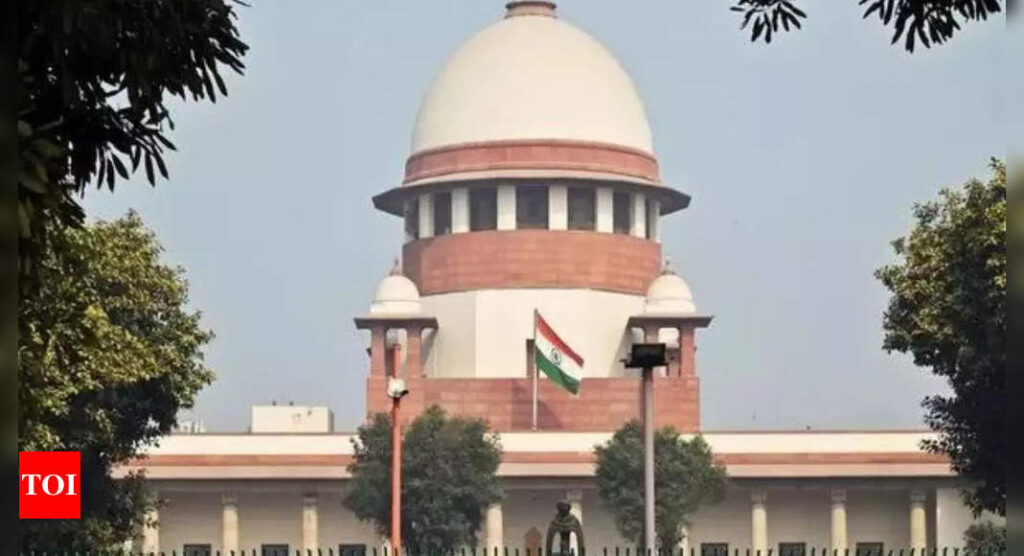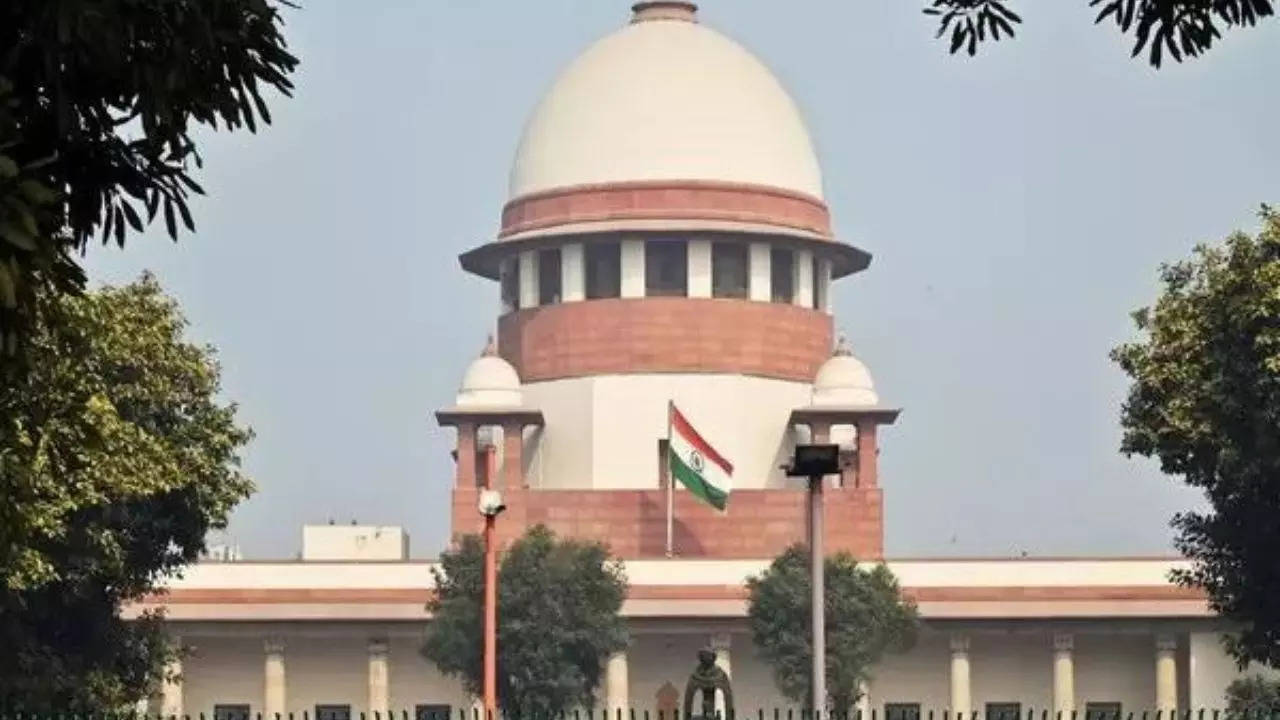[ad_1]
The comment from the bench, also comprising Justices J B Pardiwala and Manoj Misra, came after Punjab’s AAP government through senior advocate A M Singhvi claimed that seven key bills, including a fiscal bill, were kept pending by the governor.The charge was rebutted by solicitor generalTushar Mehta, who appeared for the governor.
The Punjab AAP government’s charge in Supreme Court that the governor had kept bills pending was rebutted by solicitor general Tushar Mehta, who, appearing for the governor, said it was the Bhagwant Mann led-AAP government which was in the wrong as it kept the state assembly session perennially alive by not proroguing it.
The bench then asked if this was the “scheme of the Constitution.”
Later, Punjab advocate general Gurminder Singh clarified that of the seven bills hanging fire, four were passed by the assembly while the others were money bills which could be introduced only after the customary approval of the governor which had been withheld. He said two of the stalled money bills received the governor’s nod after the state government moved the apex court.
Mehta told the SC that he would give a factual position about pending bills on Friday but accused the government of keeping the assembly alive all through the year by merely adjourning and not proroguing it.
The CJI-led bench said, “Assembly was summoned on March 3 and adjourned sine die on March 22 without being prorogued. The speaker reconvened the sitting of the assembly after three months on June 12. Is that really the scheme of the Constitution? “If there is going to be a break of three months in the sitting of the assembly, don’t you prorogue the session and then reconvene the session? It is entirely within the power of the government of the day to advise the governor to reconvene the session of the House. A session has to be held within six months of the last sitting of the House, that is what the Constitution says.”
The bench further said, “Governor says the speaker adjourns the session for three months. Really speaking, the budget session merges with the monsoon session. Is this really the scheme of the Constitution? There is a little bit of soul-searching which is required from everybody. There is a little bit of soul-searching required by governors because governors also cannot be oblivious to the fact that they are not elected representatives of the people. And the governor can withhold assent, refer it to the President, or return it to the assembly.”
CJI D Y Chandrachud said, “My concern is this. Why should parties be required to move the SC for convening a budget session? We are a democracy. These matters should be sorted out between the government and governor. We are available to ensure that the Constitution and its provisions are complied with. Surely, this is something which the governor and CM should resolve.”
For Kerala,advocate K K Venugopal said the governor kept three bills pending for two years. When the media reported about the Kerala government moving the SC, governor said he would fight it out in court. The CJI said this matter would also be listed on Friday along with a similar petition filed by the Tamil Nadu government against the governor.
Watch Punjab Government V/S Governor: Supreme court seeks updated status report on Punjab government’s plea against governor’s delay in nod to bills
[ad_2]
Source link











More Stories
We can’t wait to face India in the final: Pat Cummins | Cricket News
Railways plans 3,000 additional trains in next 4-5 years to minimise number of waitlisted tickets | India News
Faridabad: Man dies after ‘falling from hotel room window’ while partying with friends